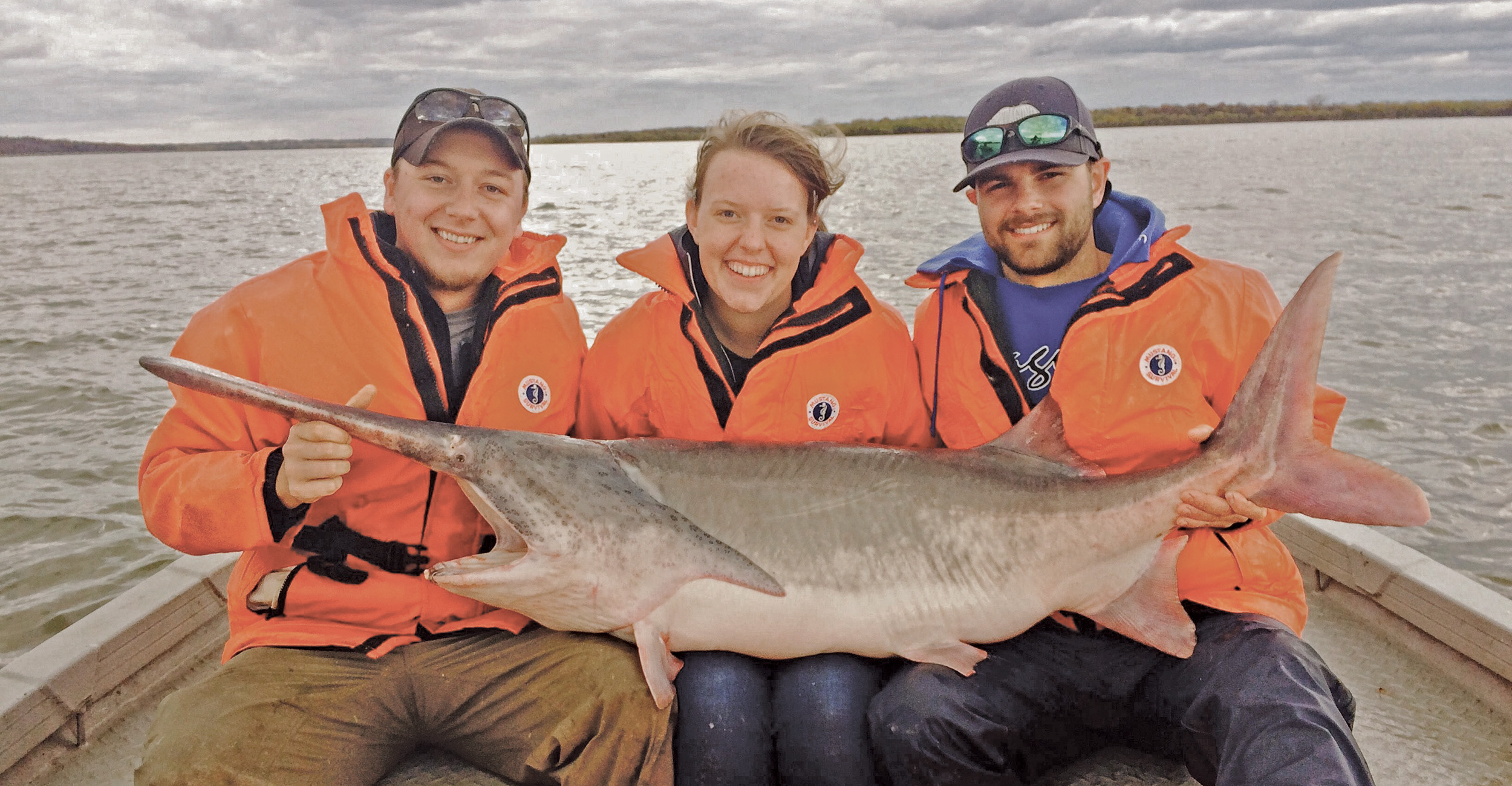
Catching a Future in Fisheries
Friday, May 27, 2022
Media Contact: Jami Mattox | Agricultural Communications Services | 405-744-8061 | jami.mattox@okstate.edu
Picture a career where the outdoors is your office and fishing is your 2 o’clock appointment.
For some alumni of the Oklahoma State University Department of Natural Resource Ecology and Management, this fantasy is a reality.
With more than 650,000 fishing licenses in Oklahoma, recreational fishing offers students pursuing a degree in natural resource ecology and management with a fisheries and aquatic ecology option an opportunity to pursue a career in the field.
Dan Shoup, NREM associate professor, has helped his students explore the wide world of fisheries for more than 17 years. He has watched students leave the classrooms of OSU to fill vastly different, productive and imperative roles in society and agriculture, he said.
Students interested in fisheries can have a career in the industry, Shoup said, whether they are interested in the preservation of water, instruction of individuals about pond management, sport fishing management, aquaculture, or work at an aquarium or a zoo.
“Students pursuing a fisheries management option for sport fish comprise the biggest group of our students,” Shoup said. “Most people don’t think about the really high number of students who are interested in marine biology after graduation.”
The fisheries and aquatic ecology option at OSU is the reason NREM senior Katy Brennan decided to come to Stillwater, she said.
“As a freshman, I wanted to focus on marine biology, and being from Oklahoma, there weren’t many options in marine biology close to home,” she said. “It was nice that OSU had a fisheries option and opened my eyes to the opportunities of managing and researching freshwater ecosystems.”
As the aquatic industry evolves, more career opportunities become available, Shoup added.
“We also have a good number of students who just have general ecosystem health and conservation interests,” Shoup said. “They don’t care whether a fish is prized as a sport fish, a food fish or just something pretty.
“There’s a value there, and our aquatic ecosystems have been stressed for decades because of pollution and disturbances. These students just want to do something about that pressing issue in our ecosystems.”
To help students thrive in a fisheries career, NREM offers hands-on courses, such as Fisheries Techniques.
“This is a fairly unique course,” Shoup said. “This course gets students out to learn to use the different fisheries equipment.”
In the course, students set gill nets, hoop nets and fyke nets and participate in electro fishing from a boat. They go backpacking and otter trawling as well as participate in other kinds of hands-on activities.
The OSU NREM department has produced a large number of fisheries staff who represent the state of Oklahoma, said Ken Cunningham, ODWC chief of fisheries division.
The ODWC fisheries division has 71 staff members of whom 21 have a bachelor’s degree from OSU with an emphasis in fisheries and aquatic ecology. Twelve have an advanced degree — master’s or doctorate — from OSU, as well.
“The program benefits ODWC, not only in training future fisheries staff but also in conducting research that improves our ability to manage aquatic resources in Oklahoma effectively,” Cunningham said.
Choosing a major in the NREM department can be an opportunity to be involved in a rewarding career with a huge impact, Shoup said.
“As long as we still have fish resources in the United States, I want to see us meet the challenges of managing fish wisely across the board, whether it’s for harvest or whether it’s just ecosystem health,” Shoup said. “I’m proud of the students that we’ve produced and what they’re able to accomplish.”
Shoup hopes the OSU fisheries option will continue to help students indefinitely, he said.
“As long as there is a need to manage fish resources, we are going to need to train people to do this task and do it well,” he said.
Story By: Tre´ Smith | Cowboy Journal
